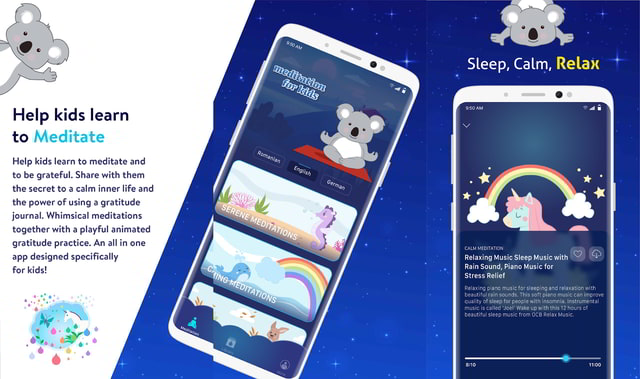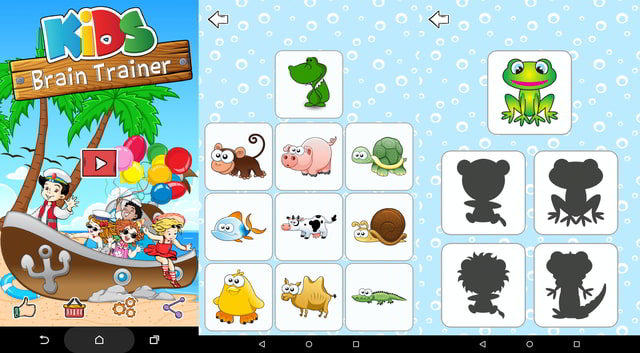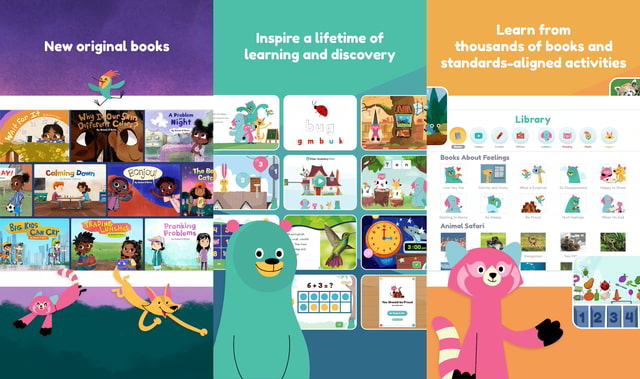In this article, I will talk about 7 such great apps. Let’s get started with the first on the list.
1. Breathe, Think, Do with Sesame
According to its developer, this app is a research-based app that helps your child aged 2-5 years learn Sesame’s “Breathe, Think, Do” strategy for problem-solving. The app provides kids with fun animations and playful interactions. Nice features of the app include five interactive activities, a unique everyday challenge, pop bubbles, visual and audio feedback, a parent section, and additional learning materials on its website. The app can be downloaded and used for free.
2. Meditation for kids
As the name suggests, this app is for kids’ meditation. The app provides various techniques such as calming meditation, bedtime stories, sleep music, hypnosis, etc. Per its developers, the app is highly recommended by psychologists, counselors, and teachers worldwide.
Important features of the app are meditation, calming and relaxing music for better sleep, visualizations, and animations from multiple categories, Initially, the app provides a free 7-day trial, after which the user needs to upgrade to the premium version with the help of a subscription-based payment method.
3. Kids Brain Trainer
This app is designed for preschool and kindergarten kids. The app presents kids with a good number of brain exercises to help them develop and improve their cognitive abilities. These exercises include puzzles, logic games, alphabet learning, etc. According to its developers, the app is also good for kids with special needs and can be used by parents and teachers.
Some noteworthy features of the app are high-quality pictures and animations, a child-friendly interface, background music, stickers, good interactivity, and awards. The basic version of the app is free but offers the in-app purchase for additional features.
4. Manatee: Mental health for families
Like the other apps in this article, this app is also for mental health, but the app is intended to be used by parents for their kid’s health. Its developer claim that the app help families control anxiety, depression, attention deficit hyperactivity disorder (ADHD), and stress.
The main features of the app include the setting of weekly goals, rewards, a chatbot, self-guided lessons, the possibility to add co-parents, kids journaling, progress monitoring, etc. The app can be installed free of cost.
5. Khan Academy Kids
One of the most popular apps for kids is from one of the most popular online learning websites in the world, Khan Academy. The app provides kids with book reading and stories and helps them develop empathy, self-confidence, and problem-solving skills. The app exposes kids to different cultures and perspectives.
Strong features of the app include multiple user accounts, learning paths for kids, a variety of learning media such as videos, books, games, songs, progress monitoring, etc. The app can be used free of cost.
6. Smiling Mind
A popular app for mindfulness and health designed for all ages. The app reduces anxiety and stress and promotes calmness and peace of mind, according to its developers.
The main features of the app are: support for all ages, programs for stress relief and peaceful sleep, can function offline, progress monitoring, and much more. The app is available free of cost.
7. Bedtime Stories for Kid’s Sleep
Kids love bedtime stories, and this app can help you enormously in this regard. This app has story books, audiobooks, and short fairy tales for kids. According to its developers, the app has been developed with the help of child psychologists and sleep consultants.
The main features of the app are simple dialogues and clear voice, background music meditative music, no ads, simple and intuitive interface, and a good collection of audiobooks and stories. The basic app can be used free of cost. Advanced features need per item purchasing.
Wrapping up
Google Play Store has dozens of apps for mental health. But still, it might be a little tricky to find a mental health app that suits your kids. Some apps focus on meditation and good sleep, while others are designed to improve learning and cognitive skills. You might have to try out several apps yourself before deciding on which app best suits your goal and your children’s age and needs.






